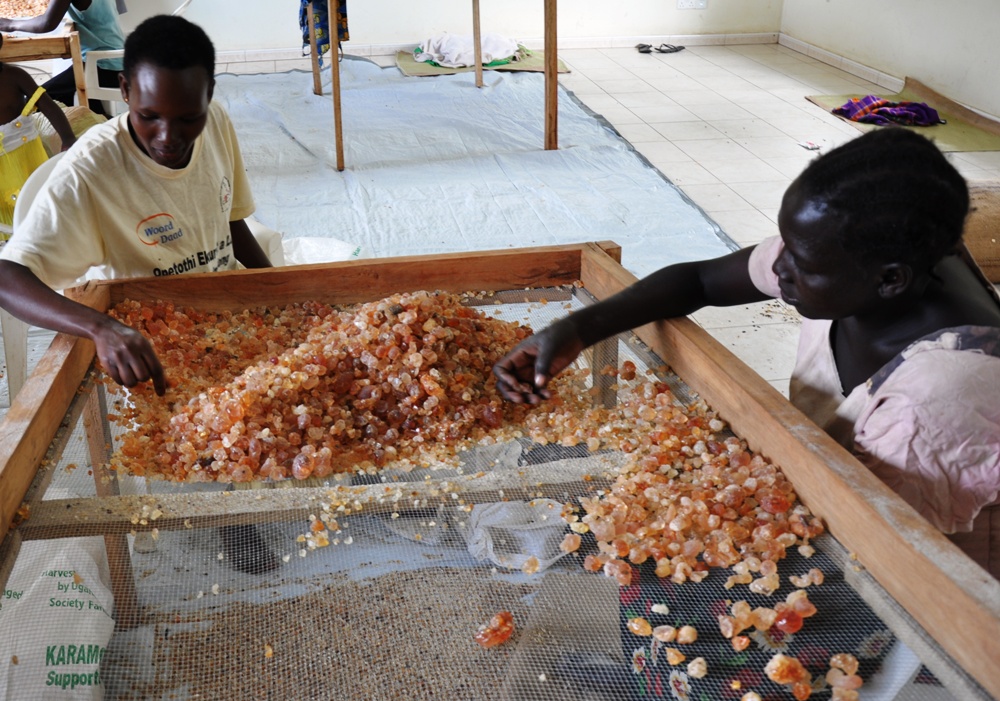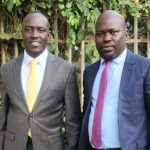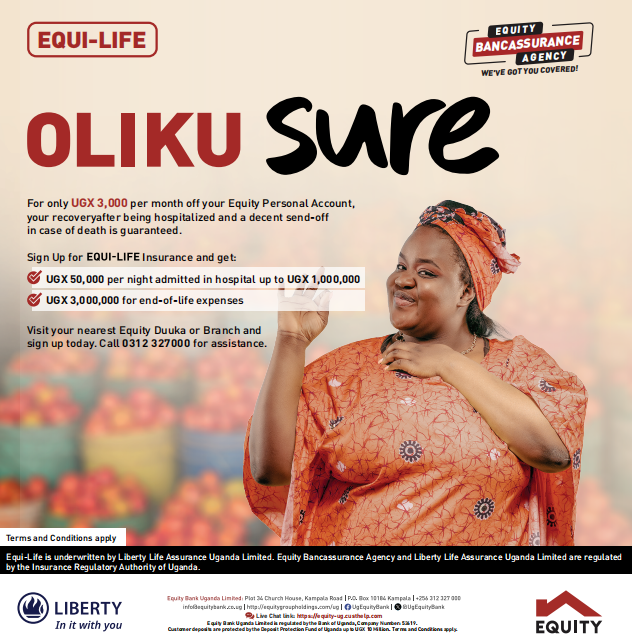By Joseph Ayolo
Moroto, Uganda: A group of farmers registered to harvest gum arabic in Moroto have appealed to President Museveni to intervene and save the cooperative land, which is at the verge of being grabbed by some security personnel with the help of the NRM chairperson, Mr. Michael Lokawa.
Gum Arabic is a natural gum made from the hardened sap of trees native to the Middle East and parts of Western Asia. Food manufacturers often use it as a stabilizer in food and drinks designed for extended shelf life. Additionally, it finds application in art products, cosmetics, and traditional lithography.
Two types of trees, Acacia Seyal and Acacia Senegal, produce sap that can be turned into gum Arabic. These species are native to the Arabian Peninsula, hence the name “Arabic.”
Mr. Jimmy Lomokol, the chairperson of the Gum Arabic cooperative, emphasized the importance of gum Arabic in various industries, including food, printing, paint production, and cosmetics. The cooperative buys gum from local harvesters at Shs1,700 per kilogram and sells it to traders within East Africa at $1.30 (Shs2,552) per kilogram. However, traders from outside the region pay higher prices, ranging from $2.30 (Shs5,798) to $3.70 (Shs9,328) per kilogram.
Despite President Museveni’s initiation of the gum Arabic project in 2002, providing funds for land acquisition and office construction, a land dispute has arisen. The cooperative’s land, registered under the name “Karamoja Gum Arabic Cooperative,” is being contested by individuals claiming it as community land. The cooperative has presented land transaction documents to elders in an attempt to prove ownership.
Last year, Mr. Andrew Keem Napaja, the former district chairperson of Moroto, was elected as the chairman of the cooperative board. However, security personnel stationed at the offices of RISO South Karamoja have restricted access to individuals involved in the gum arabic trade, leading to frustration among farmers.
Betty Ayo, a gum arabic farmer, expressed concerns over the destruction of harvested gum and appealed for President Museveni’s intervention to reclaim the cooperative land and offices.
John Lokut, another gum arabic farmer, highlighted the lack of access to training on new harvesting methods due to the blockade of the cooperative premises.
Mr. Lomokol confirmed that efforts to seize the cooperative land were intensifying, underscoring the urgent need for intervention to safeguard the interests of gum arabic farmers.
The farmers remain hopeful that President Museveni will heed their plea and address the escalating land dispute threatening their livelihoods.























